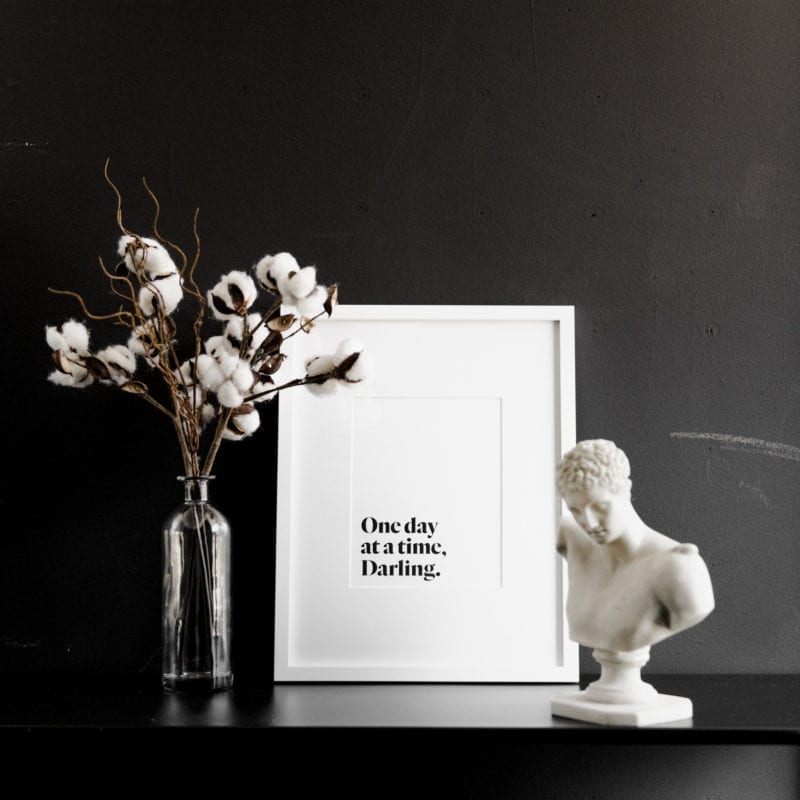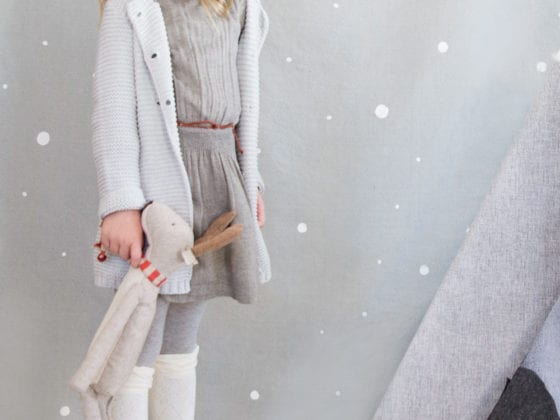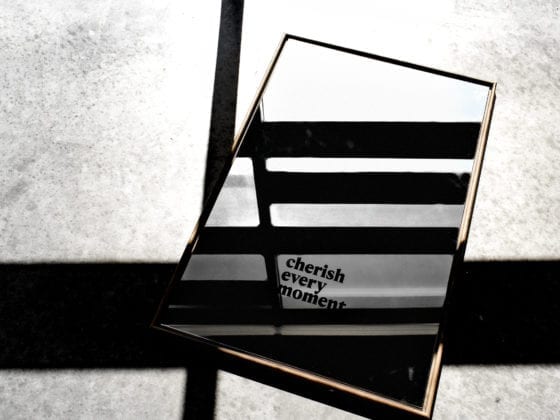“A Roundtable With Darling” offers real talk from a few of our writers. This Q&A series will take an issue and share the writers’ personal experience and lessons learned. The hope is to create a space of connection and transparency.
This year has been hard, to say the least. Let’s look back together. Even in the hard bits, there can be lessons learned and hope for the future.
A handful of Darling writers got together (virtually) to look back on the past 12 months. Gather around the table with us as we reflect. As if we were all at a table together laughing, crying and sharing our stories over a warm meal—pull up a seat as we look back on all there is to mourn and appreciate about 2020.
Here is what our Darling writers had to say about the year 2020:
What have you lost personally in 2020?
“I lost a dear family member. The pandemic made loss and grief infinitely harder.” – Sarah James, Cleveland, OH
“I lost a beloved family member. I lost the opportunity of having a graduation ceremony for my graduate school program. I lost faith in people, in institutions, and even, at times, in myself. I lost the feeling of safety.” – Cristina Amaro, Ventura, CA
“In 2020, I watched a close relationship unravel. The absence of this person in my life left me feeling lonely, unmoored and unsure about the future. The loss also exposed a lot of fears. I worried that if I could lose this person, then I could lose anything or everything.” — Emily Garcia, Saltillo, Mexico
“In 2020, I lost my ability to see my relatives, hug my parents and spend time with friends. My eyes well up as I share that short list. Not because of how difficult these realities have been for me, but because I know others—those I care for deeply and those I’ve never met—have lost so much more.” — Shelby Thomas, Denver, CO
“Oh, man. This year was something. I lost friendships. I lost my engagement. I lost a bit of my spark. I lost control. I lost the things that I built my identity on, but losing those things helped me to reconnect with my authenticity. I still feel lost most days, but I believe in the other side.” — Jacie Scott, Baton Rouge, Louisiana
I lost a bit of my spark. I lost control. I lost the things that I built my identity on, but losing those things helped me to reconnect with my authenticity.
How did you process feeling overwhelmed by what was happening in the world?
“Within the span of one week: I moved into a new house in a new state; California issued its first stay-at-home order, and my partner and I learned his mother was urgently, terminally ill. Focusing on actions which demonstrated care to loved ones from afar offered some relief. It helped me feel a little less like the world was falling apart.” – Sarah James
“I processed by writing poems, which is very therapeutic for me. I wrote out all my grief, existential questions, doubts and fears. I allowed my soul to vomit up all the words I needed to release. Poetry was the medium through which I wrestled with my faith.” – Cristina Amaro
“I processed by leaning on my friends, reading books that I knew would encourage me and writing nearly every day. Eventually, I decided to temporarily move to be closer to my family and that helped so much.” — Emily Garcia
“My unhealthy coping mechanism was to just disappear. I wouldn’t respond to people, and I’d just ghost my responsibilities. It wasn’t because I’m just this terribly irresponsible human being, but that I couldn’t process the heaviness of all that was happening around me. So I’d shut down mentally. Therapy has helped me tremendously—talking to someone who reminds me that I’m an amazingly imperfect person processing the effects of a global pandemic and all the other plot twists of life.” — Jacie Scott
What in 2020 left you disheartened? What in 2020 left you hopeful?
“I am disheartened by the widespread, manifold suffering caused by the pandemic, but I am also hopeful. As a South Asian woman of color, witnessing the election of the first female vice president of color filled me with hope. The civil rights uprising in the U.S. gives me hope that we can build a more just, compassionate world.” – Sarah James
“The civil rights uprising in the U.S. gives me hope that we can build a more just, compassionate world.”
“I am left disheartened by the polarization in our country when it comes to issues of social justice. I’m hopeful to see powerful peacemakers and the birth of grassroots movements led by leaders who care more about loving people and seeking truth than proving they are right.” – Cristina Amaro
“Not being in control left me disheartened. On the other hand, I learned how to have a good attitude and look for joy even though I wasn’t in control. That is what has left me hopeful.” — Emily Garcia
“George Floyd’s death left me disheartened. Ahmaud Arebry’s death left me disheartened. I still cry when I think about Elijah McClain. Riding the rollercoaster that is my mental health journey has left me disheartened. I’ve found that it’s the small moments that kept me hopeful in 2020. The moments that showed the true beauty of humanity gave me hope. The opportunities that allowed me to start over have given me hope.” — Jacie Scott
What’s a personal take away from the last 365 days that you’d like to take with you into 2021?
“My personal takeaway from 2020 is that I don’t need to constantly ‘explain’ myself. Time is precious, too precious to allow an intangible sense of other people’s judgment to shape my decisions.” – Sarah James
“My personal take away is to always walk boldly and with eyes wide open through the messy, the hard and the painful. As I look back on this year, I am proud of myself for finding the courage to look at the pain and allow myself to grieve instead of repressing or looking away.” – Cristina Amaro
“I would like to take my confidence with me into 2021. It is the satisfaction of knowing that I handled this year with grace and perseverance, even when I was going through things I never expected to go through. Since college, I’ve liked the Thomas Merton quote that says: ‘Perhaps I am stronger than I think.’ I was stronger than I thought I was at the beginning of this year, and I hope I remember that in 2021.” — Emily Garcia
“Embrace everything. Be grateful for everything. When the pandemic is over, I’ll fight every day to remember these lessons.” — Shelby Thomas
“Embrace everything. Be grateful for everything. When the pandemic is over, I’ll fight every day to remember these lessons.”
“I want to unapologetically step into my authenticity in 2021. I want to use my voice to speak out on things that I believe in without fear of my voice shaking. I want to share my story rather than run from it, so that I can possibly help others. Also my biggest personal take away, that I hope others will also embrace, is to remember that it’s OK to pause. Enjoy the moments. Make the moments. Appreciate the moments. See the beauty in the moments.” — Jacie Scott
What, if anything, has 2020 taught you about humility and being a student of life?
“2020 taught me that there is always more to learn about being human and being in community. I recently read this line from Thomas Merton, ‘Pride makes us artificial and humility makes us real.’”– Sarah James
“2020 has taught me that humility and being a student of life is the key to compassion, understanding and the only way we can arrive at healthy dialogue. My convictions and beliefs will never inspire or intrigue anyone without them being wrapped in humility.” – Cristina Amaro
“Losing control taught me about humility. I was forced to confront my own limitations by accepting help from family and friends. The crazy thing was that, in accepting the help, I didn’t feel ashamed or bad. I felt grateful. I would even go so far as to say that sometimes, I felt extraordinarily blessed. I knew that, despite being on my knees, I had everything that I needed.” — Emily Garcia
“Despite being on my knees, I had everything that I needed.”
“This year has absolutely shattered any illusion of control that I thought I had over the external circumstances in life. Truly everything can change in an instant and our power lies in our ability to remain grounded, compassionate and fluid through it all.” — Shelby Thomas
“An open mind is the key to growth and wisdom. This year has been full of so many moments and events that have caused us to really check our perspectives and be open to understanding new perspectives. We’re always learning.” — Jacie Scott
What is one area you’d like to grow in next year? Is there something you’d like to learn more about?
“I am half Malayali and Tamil. Though I am the daughter of an immigrant, I feel more removed from this lineage than I’d like to be. I want to learn the cultural history, understand the customs and read the literature of this side of my family more in the next year.” – Sarah James
“I would like to learn more about the plight of immigrants, migrants and asylum-seekers on the U.S.-Mexican Border. Once I have gained more knowledge, I would like to take action steps to get involved and be the change I want to see regarding these people groups.” – Cristina Amaro
“Personally, I’d like to set aside my phone and computer more in order to play and do activities with my daughter. I’d also like to learn more Italian next year.” — Emily Garcia
“I want to follow through with the things I want to do. Learning Spanish, practicing skating, speaking my mind, working on passion projects and connecting with others. I want to expand my work in mental health for young people of color. I want to travel (when it’s safe). I now see so clearly the old habit I’ve had of putting my desires on hold, always waiting for the right time, the right moment. Well, the right moment is now.” — Shelby Thomas
“This year has introduced me to parts of myself that I’d either pushed down or never nurtured. I’d like to continue growing in those areas. I want to learn more about mental health, join discussions and continue to educate myself on social injustice and use my words and passions for things greater than myself. This year began a shift in me, and I want to continue that evolution in 2021.” — Jacie Scott
How can adversity spur us to growth and hope?
“Adversity brings us into contact with vulnerability, our own and that of others. From my experience, this makes us more tenderhearted and compassionate. When we care deeply about the suffering of others, we imagine how our world could be different—hope. When we come through adversity, we realize we are stronger and more resilient than we may have previously thought—growth.” – Sarah James
“Adversity wakes us up to the experience of pain that we might not have experienced otherwise, which then in turn opens up up to empathy for other people’s pain. Growth is then inevitable as our hearts expand to include others we might not have been mindful of or included before.” – Cristina Amaro
“There is a line from the Robert Frost poem, ‘A Servant to Servants’ that says: “He says the best way out is always through.” I wrote that down earlier this year, and I have repeated it to myself whenever I wanted my problems to disappear and life to feel simple again. It reminded me to keep going, even when I couldn’t see the ‘way out’ yet. I learned that when I accept adversity and stop trying to fight it, I will experience growth and hope.” — Emily Garcia
“I learned that when I accept adversity and stop trying to fight it, I will experience growth and hope.”
“I’m beginning to realize that growth and hope don’t grow in spite of adversity but because of it. Even during the times where we felt completely divided and broken hearted, in ways that we never could have predicted or hope still sprouted. It didn’t look like we thought it would, but we still found it. What a curious, profound lesson to learn…that there is hope hiding in the pain we share.” — Shelby Thomas
“I’ve always believed that adversity is along the path to growth and hope. Facing adversity doesn’t have to define the trajectory of your path. It’s just another curve in it. This year has been a master class in that.” — Jacie Scott
What final words would you like to say to 2020?
“2020, you were nothing like I expected. I’m grateful and exhausted at once.” – Sarah James
“You broke me so thoroughly that I can no longer go back to the person I was before. Thank you for the growth and expansion in my heart. Thank you for compassion and inclusivity for those suffering on the margins. Thank you for showing me that I can walk boldly and I can be joyfully resilient when I walk through times of adversity.” – Cristina Amaro
“2020, you were the worst, hardest year of my life. I will not be sad to see you go, and yet, I will because I learned how to look for the good in the hard. I learned how to laugh through the tears. I learned how to say ‘thank you’ instead of becoming bitter. While I hope that 2021 will be easier, I know that even if it is not, you have given me the tools to face it and to thrive.” — Emily Garcia
“Dear 2020, good riddance, sis! But also, thank you. Thank you for breaking me. Thank you for building me. Thank you for exposing while also saving. Thank you for the lessons and the promise of growth. I will not miss you, but I will never forget you.” — Jacie Scott
What have you learned from 2020? How do you create space to grieve lost things while also holding hope for the future?
Image via Tony Li











